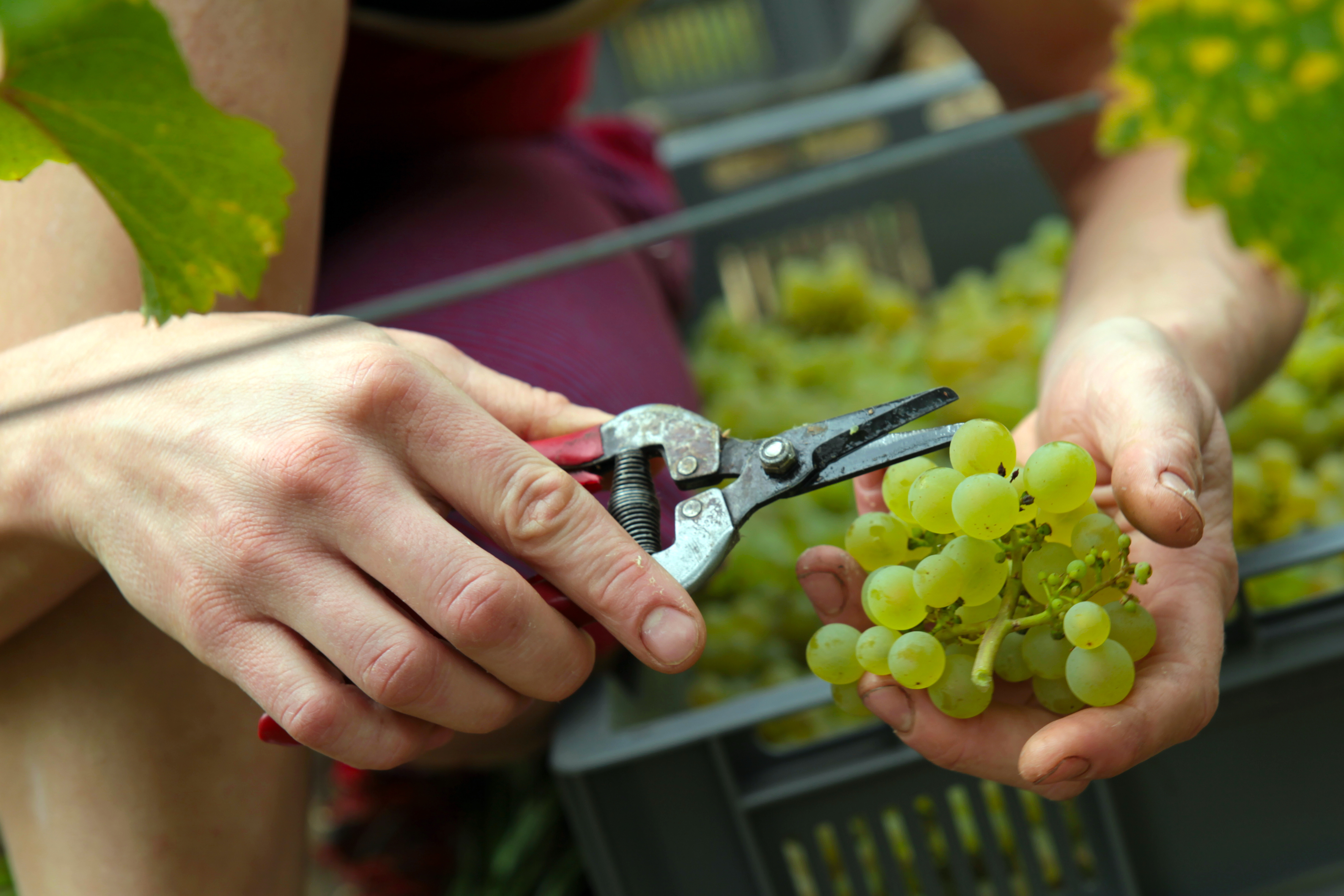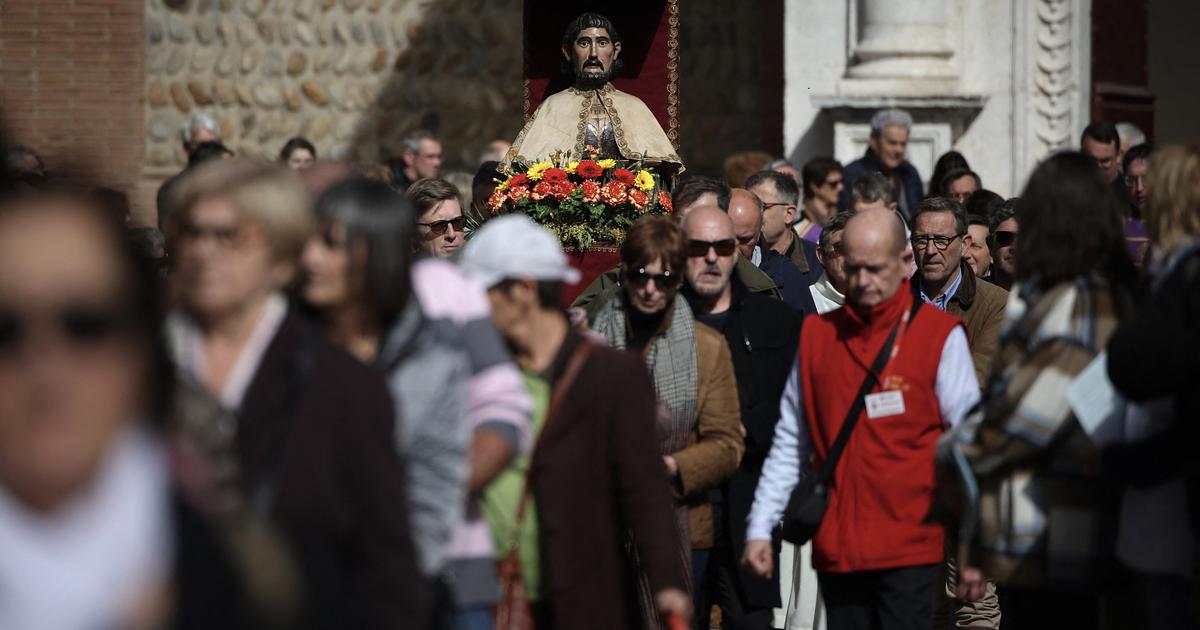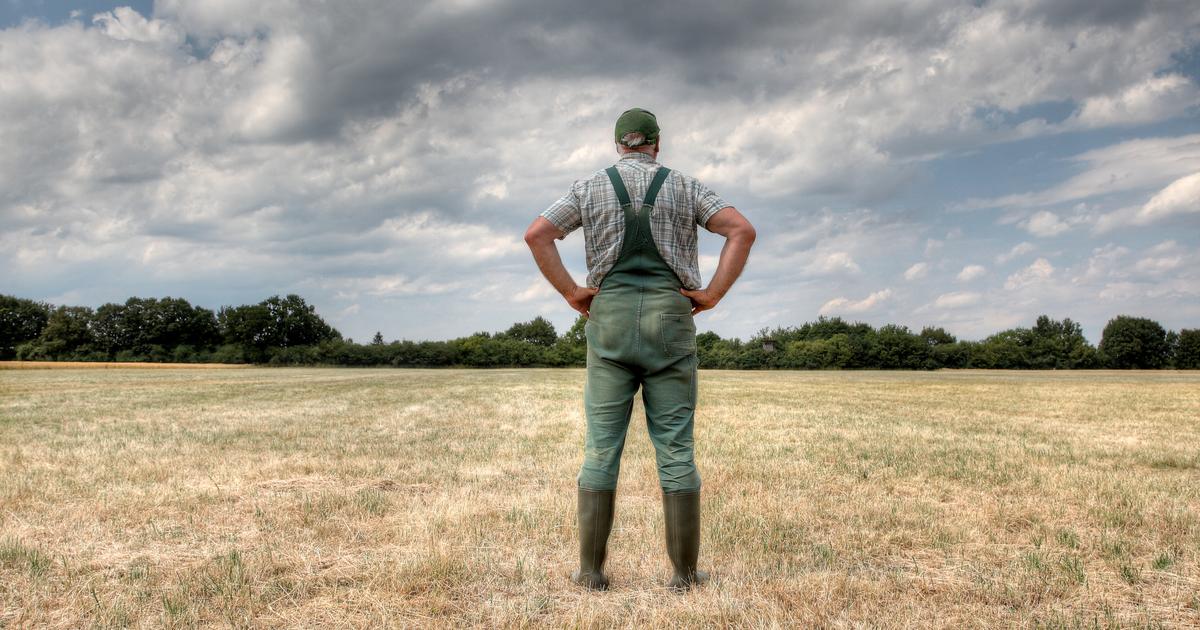Floriana Fanizza looks on, sorry, at her field of destroyed celery because she couldn't pick them. Lost harvests, lack of manpower, difficulties in selling ... the coronavirus has hit Italian farmers hard, already badly affected by the drought. According to the main agricultural union, Coldiretti, almost four out of ten companies in the fruit and vegetables sector are in difficulty today.
Read also: Coronavirus: more than 200,000 applications to help farmers
Their sales are at half mast due to the blocking of borders and the closure of canteens and restaurants, a phenomenon that has not been offset by the increase in purchases in supermarkets. And the crops themselves are jeopardized by the lack of labor.
At the very beginning of the containment measures, Floriana Fanizza, who owns a farm with her family in Fasano (Apulia, south), thus found herself without sufficient staff, some of her employees preferring not to come to work, fearing for their health. The celery crop has been lost, as has the turnip greens, which are now in bloom because they have not been harvested.
And the Masseria Mozzone is already “ late ” for the planting of vegetables to be picked this summer. “ To sow properly, we would need seven to eight people. We hope to be able to find them, otherwise we will be forced to reduce production, ”says the 41-year-old farmer.
Usually 350,000 foreigners work seasonally in Italian agriculture. But according to the Minister of Agriculture, Teresa Bellanova, it is missing this year " between 250,000 and 270,000 ".
Massive regularization?
A phenomenon that places many farmers in a " dramatic situation ", notes Coldiretti, who points out that 27% of the working days in the sector are normally worked by foreigners.
" We must intervene urgently because the harvesting of strawberries, asparagus, artichokes, fruits under glass (such as melons, tomatoes, peppers ...) is already underway " and others will soon begin, like cherries, apricots, plums, tomatoes ..., underlines the agricultural union. The challenge is significant, including in terms of food self-sufficiency, the peninsula being the third European agricultural producer in terms of value (56.6 billion euros in 2019), behind France (75.4 bn) and at the elbow tied with Germany (57 bn).
While Romanians alone represent 110,000 of the 350,000 foreign seasonal workers working in the peninsula, the Italian authorities have started discussions with the Romanian embassy to try to organize " green corridors " by ensuring that once there health security will be maximum.
The Minister of Agriculture has also launched a block in the pond, saying she is in favor of a massive regularization of illegal immigrants in Italy, in order to restart the economy.
This would particularly concern those working in the agricultural sector, where many are subject to the mafia and the " caporalato ", a modern form of slavery where intermediaries take a large part of the meager wages paid.
The proposal provoked an outcry from the far right, League of Matteo Salvini at the head, but the Coldiretti said he was very favorable.
Lake Como in less
To combat recruitment difficulties, the union has already launched an online platform " Jobincountry " (Employment in the countryside), to match job offers and available people, especially seasonal workers in the tourism sector, idle due to the closure of hotels and restaurants.
As if the impact of the coronavirus was not enough, Italian farmers also face drought rarely seen during this period. According to Meteo Expert, Italy is experiencing its driest spring in the past 60 years. Since the beginning of the year, it has received just over half of the usual precipitation, creating a lack of water equivalent to Lake Como.
Read also: Trump announces $ 19 billion in aid to American farmers
In Puglia, Floriana Fanizza begins to worry about it. " It's been a long time since it rained, the grounds are arid, especially for the wheat ": " We are in a critical situation, we would need to irrigate our fields ", she underlines. For the moment, the government has released a fund of 100 million euros to support agricultural businesses, to which is added an envelope of 50 million to buy food products and distribute them to the poorest, allowing both to help the needy, to avoid wastage but also a fall in prices by withdrawing stocks from the market.





/cloudfront-eu-central-1.images.arcpublishing.com/prisa/EZY3USHL75GFHJUQVOYWVDGKPM.jpg)

/cloudfront-eu-central-1.images.arcpublishing.com/prisa/R65LZW6EVZDNDFZPK25RWRQTVY.jpg)

